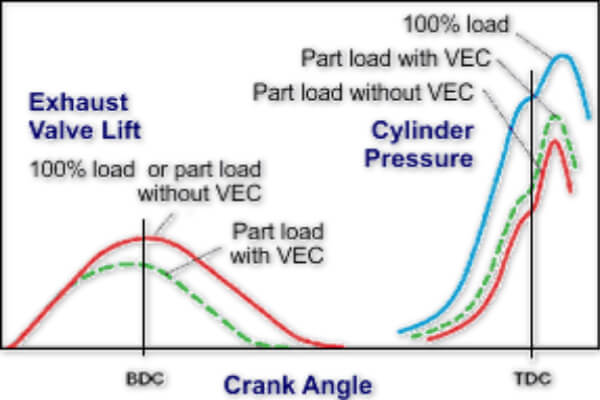© 2019 Suzhou Tianzhijiao Precision Machinery Co.,Ltd. All rights reserved. Site Map Designed by iwonder.cn
Most people are curious to know how valve timing affect the performance of the engine. But in order to understand this fact, first, it is important to understand how these valves work. Note that the engine valves are like a human nose. As we humans use nose to breathe in and out, the automobile engines make use of valves to breath. The engine camshaft helps to open and close these valves for a specific interval of time. The opening and closing timing for the valve is generally specified in terms of degrees as per the position of engine piston.
The inlet valve of engine opens for a specific angle right before the piston grabs the TDC using exhaust stroke. Once the piston reaches BDC, the valve closes by a certain angle. Note that, during the suction stroke, the air-fuel mixture suck into the cylinder by following a rapid motion. It happens just because of the downward movement of the piston that creates some vacuum in the cylinder so that the air-fuel mixture finds its way to the empty space inside.

Why valve timing matters a lot?
The air-fuel mixture uses to have both motion and mass. It is not possible for an entire charge to enter into the cylinder; even if the piston moves to the endpoint in the downward stroke because the valve opening is quite small. As a result, the system maintains a very small pressure at combustion chamber; it is observed to be below atmospheric pressure; however, the charge is still moving towards piston’s motion direction with high velocity. In case if the inlet valve closes in-between, the cylinder will not be able to get enough charge.
That is why the inlet valve must be kept open until the piston finds its way to the next stroke in an upward direction. This second stroke is named as compression stroke. The analysis reveals that at this point, the cylinder pressure becomes somewhat equal to atmospheric pressure. Engineers make all efforts to adjust the timing of the inlet valve in such a manner that system gets the perfect charge to stay tuned.
It is important to understand that the exhaust valve opens right before the piston is in power stroke and reaches BDC. The valve closes by certain degree right when the piston reaches TDC. This process also helps to maintain the exhaust gases in the engine cylinder.